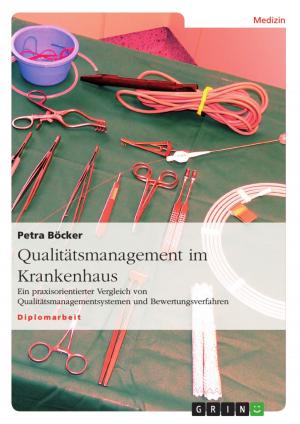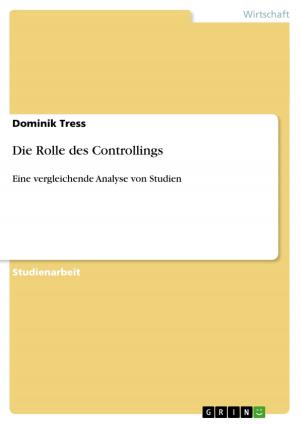High Commitment HRM organizations - a case study
a case study
Business & Finance, Human Resources & Personnel Management| Author: | Theresa Sturm | ISBN: | 9783638043410 |
| Publisher: | GRIN Verlag | Publication: | May 9, 2008 |
| Imprint: | GRIN Verlag | Language: | English |
| Author: | Theresa Sturm |
| ISBN: | 9783638043410 |
| Publisher: | GRIN Verlag |
| Publication: | May 9, 2008 |
| Imprint: | GRIN Verlag |
| Language: | English |
Seminar paper from the year 2007 in the subject Business economics - Personnel and Organisation, grade: 1, University of Vienna, 10 entries in the bibliography, language: English, abstract: A rapidly changing economic environment, characterized by such phenomena as the globalization and deregulation of markets, changing customer and investor demands, and an increasing product-market competition, has become the norm for most organizations. To compete in this new environment, a continual performance improvement through reducing costs, innovating products and processes, and improving quality, productivity and speed to market is essential.1 Concerning these required quality improvements, in recent years, a new approach to management, particularly coming from the Anglophone countries like the United States, in which organizations compete on quality rather than cost, and rely on human resource development to do so, could be detected. This new approach focuses on the involvement of employees in the decision making process and on using a certain combination or bundle of progressive management practices, which raise welfare to workers (for example training, appraisal, profit-sharing and high compensation systems).This approach has been conceptualised variously as 'best practice' human resource management (HRM), 'high performance work systems', 'high commitment' HRM or 'high involvement' management. Whatever the terminology, the idea is that a particular set of HR practices has the potential to bring out improved organizational performance. In the following, I will explain more in detail the list of high commitment HR practices outlined by Pfeffer (1998) and at the same time apply those practices on a real world situation. In order to provide a more realistic illustration of this new approach, I had the possibility to obtain information from and co-operate with the HR department of Oracle Austria, the Austrian subsidy of the American database software corporation, which pursues the strategy of adding value through appreciation ('Wertschöpfung durch Wertschätzung') and thus, represents a typical example of what the theory calls a 'high performance work system'. Additionally, I will theoretically explain the connection between this new approach and the desired outcome, the improvement of the organization's overall performance.
Seminar paper from the year 2007 in the subject Business economics - Personnel and Organisation, grade: 1, University of Vienna, 10 entries in the bibliography, language: English, abstract: A rapidly changing economic environment, characterized by such phenomena as the globalization and deregulation of markets, changing customer and investor demands, and an increasing product-market competition, has become the norm for most organizations. To compete in this new environment, a continual performance improvement through reducing costs, innovating products and processes, and improving quality, productivity and speed to market is essential.1 Concerning these required quality improvements, in recent years, a new approach to management, particularly coming from the Anglophone countries like the United States, in which organizations compete on quality rather than cost, and rely on human resource development to do so, could be detected. This new approach focuses on the involvement of employees in the decision making process and on using a certain combination or bundle of progressive management practices, which raise welfare to workers (for example training, appraisal, profit-sharing and high compensation systems).This approach has been conceptualised variously as 'best practice' human resource management (HRM), 'high performance work systems', 'high commitment' HRM or 'high involvement' management. Whatever the terminology, the idea is that a particular set of HR practices has the potential to bring out improved organizational performance. In the following, I will explain more in detail the list of high commitment HR practices outlined by Pfeffer (1998) and at the same time apply those practices on a real world situation. In order to provide a more realistic illustration of this new approach, I had the possibility to obtain information from and co-operate with the HR department of Oracle Austria, the Austrian subsidy of the American database software corporation, which pursues the strategy of adding value through appreciation ('Wertschöpfung durch Wertschätzung') and thus, represents a typical example of what the theory calls a 'high performance work system'. Additionally, I will theoretically explain the connection between this new approach and the desired outcome, the improvement of the organization's overall performance.















